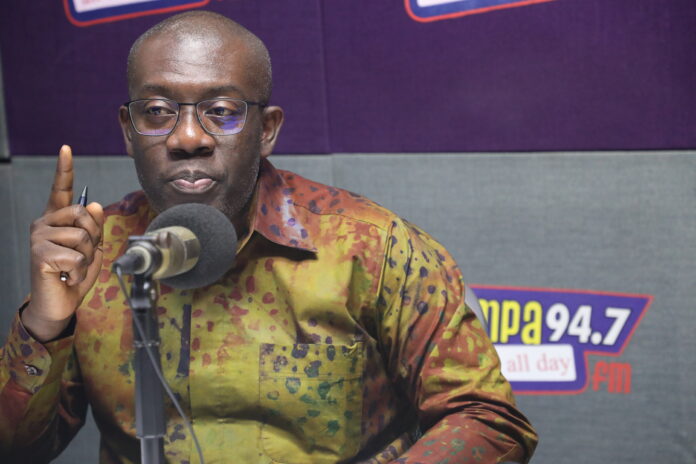The Works and Housing Minister and Member of Parliament for Ofoase/Ayirebi in the Eastern Region, Kojo Oppong Nkrumah, has urged Ghana’s political leaders to pay closer attention to the concerns of citizens, stressing that ultimate power lies with the people.
In an interview with JoyNews, Mr. Oppong Nkrumah emphasized the importance of public accountability, reminding politicians that the electorate has the power to determine their fate at the end of their four-year term.
“The political class has to listen more to the Ghanaian public. The power rests with the people. They give us that power for four years, and they will hold you accountable at the end of those four years. Listen more to the people who employ us, the people who you work for, and it is how you deal with the issues,” he said.
His remarks come after significant losses for the New Patriotic Party (NPP) in the parliamentary elections, with the opposition National Democratic Congress (NDC) securing a majority in the 9th Parliament. Although not yet officially confirmed, provisional results suggest the NPP also faced heavy losses in the presidential election.
Despite retaining his seat in Ofoase/Ayirebi with 58.1% of the vote, Mr. Oppong Nkrumah expressed concern over the drop in voter turnout and the decline in party support.
He attributed this to growing apathy among party supporters, stemming from dissatisfaction with the management of the party and internal processes.
“Across the country, we found instances of people refusing to vote—some even at polling stations, angry or disappointed. Others said they wouldn’t vote unless we gave them money. These sentiments reflect a larger issue nationwide,” he explained.
The Works and Housing Minister also noted a “wind of change” sweeping across Ghana, significantly impacting the NPP’s performance.
Despite these challenges, he credited his campaign team for securing a notable margin of victory in Ofoase/Ayirebi by addressing voters’ concerns.
He added that, the party must embrace feedback and make necessary adjustments to improve governance and strengthen its relationship with the electorate.
“I think that we need to encourage a culture of internal disagreements, without those who disagree being treated as, for want of a better expression, eternal enemies,” he added.
ALSO READ:

